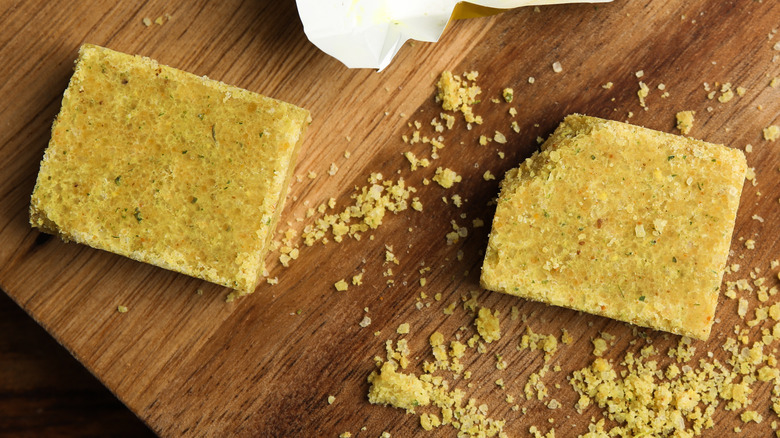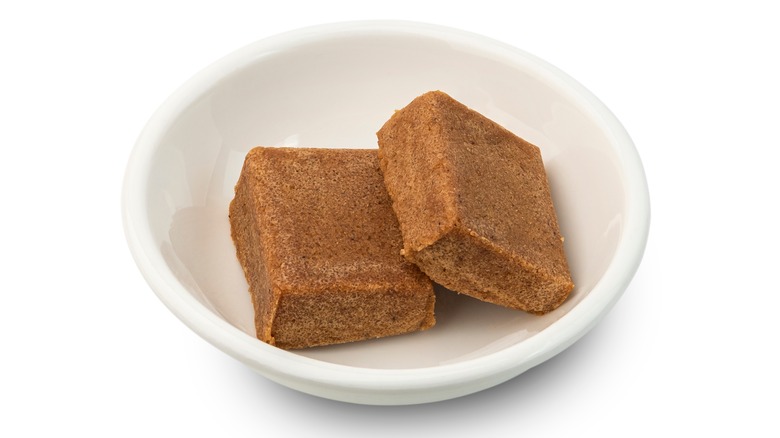The Colonial European Origins Of Bouillon
Bouillon and individually foil-wrapped bouillon cubes are important tools in the modern kitchen, especially with the surge in popularity of products like Better Than Bouillon. From adding tons of flavor to acting as a seasoning base, bouillon cubes are an important ingredient in almost every pantry. They add instant, incredible flavor to soups, stews, rices, sauces, and much more. Essentially a distilled broth or stock, bouillon is a verifiable flavor bomb that accentuates whatever it's added to.
TASTE describes bouillon as being made of dried meat and vegetables ground into powder, and combined with salt, proteins, and fat. A man named Benjamin Thompson is believed to be one of the foremost developers of the earliest iteration of bouillon, which was basically solid bone stock and meat trimmings, according to Serious Eats. These dehydrates stocks were then produced in massive quantities in later years. In the mid-1800s, a chemist named Justus von Liebieg developed a concentrated beef solid extract, while dried soups were developed by Carl Heinrich Theodor Knorr (yep, that Knorr) in the late 1800s. And its developed only continued from there.
Bridging the early bouillon to today's variations
Fast-forward a decade to when Julius Maggi produced another sort of packaged soup. In he early 1900s, MSG was developed in Japan (essentially acting as concentrated umami flavor), and this also found its way into bouillon cubes. Amid several global wars in the 1900s, more and more bouillon products were perfected for easy meals for soldiers (via Serious Eats). Technically, though, the first actual bouillon cube wasn't sold to the public until 1907 by the Swiss Maggi corporation, as noted by TASTE.
Ever since, bouillon has been a staple in practically every country, with different companies — Maggi, OXO, Knorr, and others — and separate products filling the space, including different flavor profiles and forms (cubes vs. pastes vs. crumbles vs. liquids). A newer type of product is the aforementioned Better Than Bouillon, as well as individually-packaged tubes/envelopes of a thick, concentrated stock, that can be squeezed directly into whatever you're cooking.
While some bouillon cubes may be negatively viewed due to their high sodium content, Serious Eats notes that in 2017, the West African country of Senegal actually instituted a salt content limit for all bouillon cubes. Today, studies aimed at finding ways to reduce sodium in bouillon could one day solve this dilemma and allow the ingredient to remain flavorful without posing a health risk.

